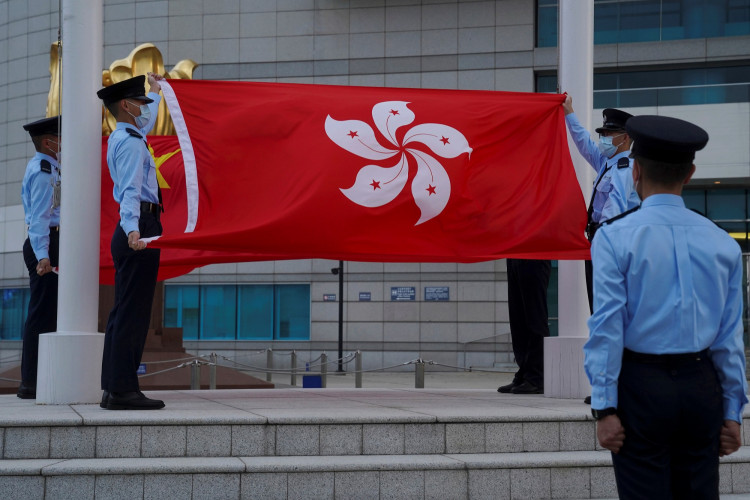Hong Kong's newly enacted national security legislation, known as Article 23, has ignited a wave of apprehension both within the city and internationally, marking a significant moment in the city's ongoing political saga. The law, which introduces severe penalties for a range of offences including sedition and espionage, has prompted warnings from the city's justice minister about the potential legal implications of online criticism, further intensifying concerns about the erosion of freedoms in the financial hub.
Justice Secretary Paul Lam, in a recent televised interview, delineated the circumstances under which individuals could find themselves in violation of the law, emphasizing the role of intent and purpose behind online posts. Lam's comments underscore the broad scope of the legislation, which extends the colonial-era offence of sedition to encompass actions perceived as inciting hatred against the Chinese Communist Party's leadership.
"In that case of course there is a risk and a chance [of breaching the law]," Lam stated, highlighting the precarious position residents now find themselves in when expressing dissent.
Security Chief Chris Tang echoed Lam's sentiments, indicating that the authorities would gather additional evidence, including personal possessions and past activities, to build cases against individuals suspected of breaching the law. Tang's assertion, "if you breached the law, I will definitely find evidence against you," signals a robust enforcement stance that has alarmed many within and beyond Hong Kong's borders.
The legislation builds upon a national security law imposed by Beijing in 2020, which has already led to the arrest of nearly 300 individuals, predominantly for sedition related to online critiques of the authorities. This crackdown has decimated the city's political opposition and civil society, with critics arguing that Article 23 will only exacerbate the curtailment of rights.
However, Hong Kong officials defend the law as a necessary measure to address legislative deficiencies in the existing Beijing-imposed law and to fulfill a "constitutional responsibility" under the Basic Law, the city's governing document since its 1997 handover from Britain to China.
The international response to Article 23 has been swift, with protests erupting in cities like London and Taiwan, home to significant Hong Kong diasporas. In London, demonstrators, including activists with arrest warrants issued by Hong Kong authorities, voiced their fears of reprisal. Meanwhile, in Taiwan, protesters symbolically depicted the struggle between the island and China's leadership, with the Chinese president represented by Winnie the Pooh being placed behind bars in a theatrical display.
Global powers, including the United States, Britain, Canada, the European Union, and the United Nations, have expressed concerns over the law, which they view as a breach of the Sino-British Joint Declaration that promised to uphold Hong Kong's rights and freedoms post-handover. China's rebuttal to these criticisms, denouncing the "denigration and smearing" of the law, highlights the deepening rift between Beijing and the international community over Hong Kong's future.
As Hong Kong navigates this latest chapter in its complex relationship with mainland China, the implications of Article 23 for the city's residents, its status as a global financial center, and its international relations remain to be fully seen.






